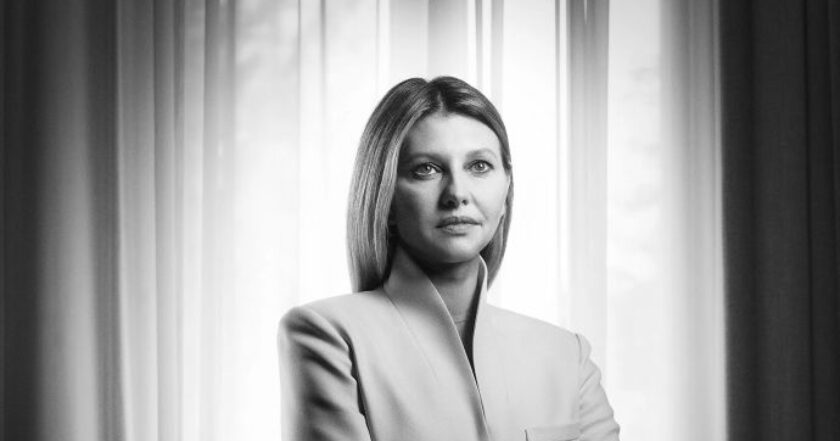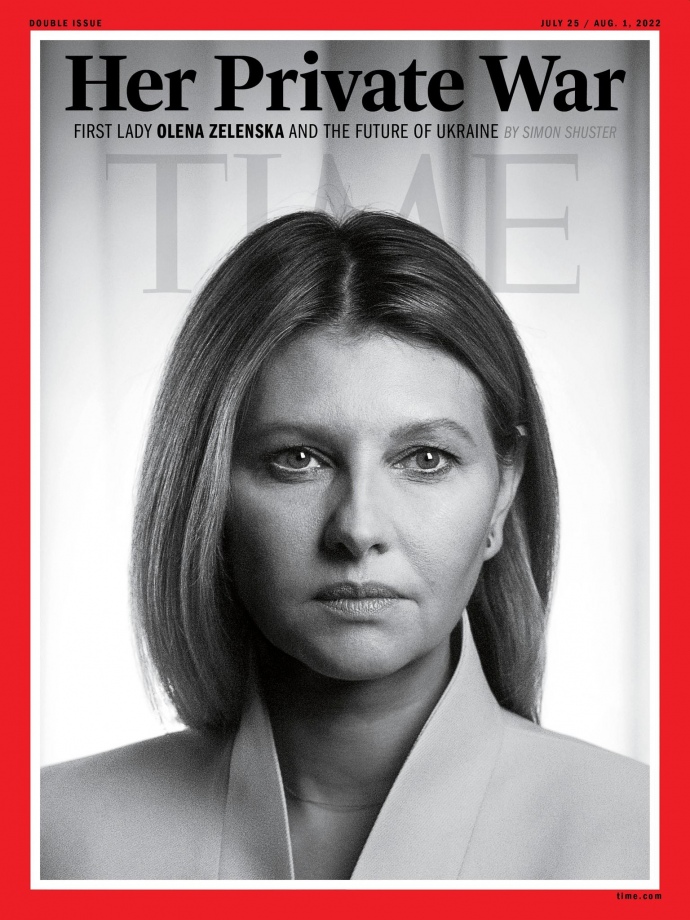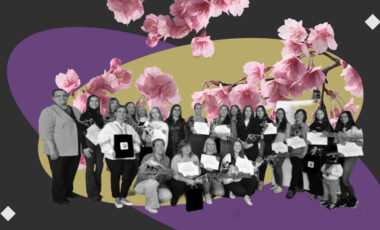Time features Zelenska on its cover

The first lady of Ukraine, Olena Zelenska, was on the cover of "Time." The famous American magazine published her story of living through
It is reported by Time magazine.
In May, the President of Ukraine, Volodymyr Zelensky, was on the cover of Time magazine for the second time, and now the magazine dedicated the material to his wife.
On June 20, Olena Zelenska spoke to the media outlet about the war trauma that Ukrainians are experiencing and her efforts to help them overcome such trauma.
Time writes that Zelenska herself is experiencing the trauma of the war: for her, it began at dawn on February 24.

The night before russia's invasion of Ukraine, the first lady made a note to prepare an "emergency suitcase" for the family but never got around to it. Neither did her husband: Volodymyr Zelensky saw the intelligence reports but did not believe that the russians would dare to attack.
The start of the war forced the Zelensky family to split up: the president stayed in Kyiv to manage the country, while his wife hid with their two children.
The president's wife did not want to go, but the danger left no choice for her, her 9-year-old son Kyrylo and her 17-year-old daughter Oleksandra.
Western special services warned Zelensky that the russians intended to kill or capture him. The president said that the enemy had marked him as target #1 and his family as target #2.
Zelenska and her children did not leave the country and did not hide in an underground "bunker," they stayed in Ukraine but had to move. To minimize the risk of murder, Zelenska and her children had to go offline. They could not bring mobile devices or log into social media accounts that could be tracked.
For security reasons, the family was not allowed to communicate with the president via video calls. For weeks, they talked only over secure phone lines that had to be arranged in advance. But the children saw their father a lot on television.
Over time, security protocols were eased, allowing the family to access the Internet.
According to Zelenska, the uncertainty gave rise to the habit of making the most of the facilities wherever they were "because you don't know when you'll have time and when you'll get to a normal shower next time."
Zelenska's projects to improve the country's education and health care were terminated, as was her career as a screenwriter. Surrounded by soldiers, she was rarely sure where she would spend the night.
But in 10 weeks after the invasion, Zelenska has come out of hiding and devoted herself to helping the country deal with trauma, both collective and personal, the newspaper writes.
On May 8, on Mother's Day, Zelenska met with Jill Biden, the first lady of the United States, at a school in western Ukraine, which was turned into a shelter for displaced families. The appearance was the beginning of Zelenska's new role. Since then, she has become an active and prominent supporter of Ukraine's defense in the international arena.
As Time magazine notes, after more than two months in hiding, Zelenska is making up for the lost period. Her days are packed with speeches, meetings, panel discussions, and interviews.
Much of the first lady's work has focused on empowering organizations that specialize in trauma care and connecting them with government agencies that can facilitate care for people in need.
In May, Zelenska launched an initiative to provide psychological support to Ukrainians. It has now started training counseling psychologists, established mental health hotlines, and brought in foreign experts to provide clinical support.
Time notes that the psychological consequences of war are enormous. According to estimates by the Ministry of Health of Ukraine, 15 million people, almost a third of the population, are likely to need psychiatric care. About 8 million were displaced by the war. The number of troops has tripled since the invasion to more than 700,000. Many soldiers are likely to be injured in the line of duty.
"This could have huge consequences for the country if we end up with post-traumatic stress disorder that is not treated after the war," Zelenska said in an interview with TIME.
Read Rubryka's daily timeline of war: current news on Ukraine's defense against russia's aggression.























































